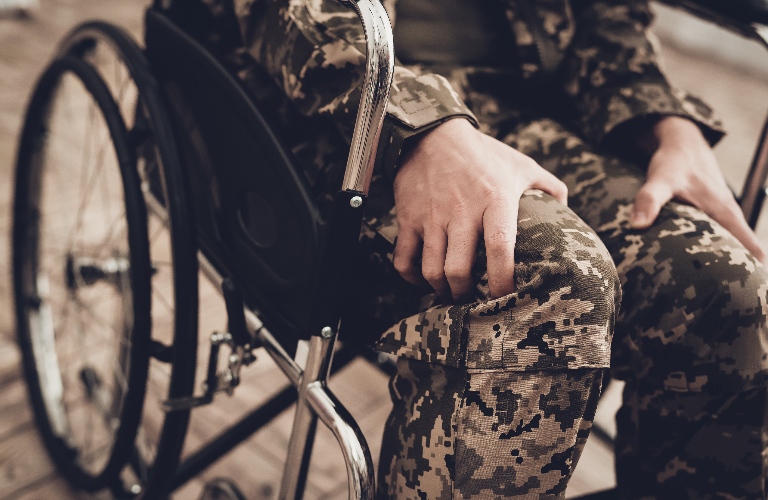
For the brave men and women who served in Southwest Asia, the battle did not always end when they returned home. Many of these veterans began experiencing a range of chronic symptoms, including persistent fatigue, joint pain, respiratory issues, and cognitive difficulties, which seemed to have no clear cause.
For years, these veterans struggled to find answers, until the medical community recognized a pattern known as Gulf War Syndrome or, more formally, Undiagnosed Illnesses and Medically Unexplained Chronic Multisymptom Illnesses.
What is Gulf War Syndrome?
“Gulf War Syndrome” is an umbrella term for a range of chronic symptoms reported by many veterans of the 1990-1991 Persian Gulf War and later operations in the region. The Veterans Administration (VA) acknowledges that certain conditions are “presumptively” related to service for veterans who served in Southwest Asia during this time period.
This means that if a veteran develops one of these conditions while serving in this area, the VA assumes that the illness is related to their service, making it easier to access benefits.The VA’s list of possible illnesses for Gulf War veterans includes:
- Medically Unexplained Chronic Multisymptom Illnesses (MUCMI): A cluster of signs and symptoms that do not have a definitive diagnosis. This includes conditions such as Chronic Fatigue Syndrome, Fibromyalgia, and Irritable Bowel Syndrome (IBS).
- Undiagnosed illnesses: Unexplained symptoms such as abnormal weight loss, fatigue, cardiovascular disease, muscle and joint pain, headaches, menstrual disorders, neurological and psychological symptoms, skin conditions, respiratory disorders, and sleep disturbances can be signs of various illnesses.
- Specific Infectious Diseases: The VA also considers certain infectious diseases to be service-connected, such as malaria, brucellosis, and the West Nile virus.
You can find the full list of possible conditions and service requirements on the VA’s official Gulf War Veterans page.
The Importance of the “Presumptive” Connection
Typically, when a veteran files a claim for disability benefits, they must prove that their condition is directly linked to their military service. This can be a challenging task, especially if the condition develops years after service and lacks a clear diagnosis.
For Gulf War veterans, the presumptive rule eliminates this significant burden. You don’t need to prove that a specific event, exposure, or injury caused your illness. Instead, you only need to show:
- You are a veteran who served in the Gulf War, in the Southwest Asia theater of operations, from August 2, 1990 to the present.
- You have a qualifying chronic disability appeared during your service or within the deadline (as defined in 38 CFR § 3.317), and has lasted for six months or longer.
- Your condition resulted in a disability rating of 10% or higher.
This policy, based on the Persian Gulf War Veterans Act of 1998 (Public Law 105-277) and regularly updated, is a crucial acknowledgement of the unique and sometimes hazardous experiences these veterans have faced.

Other Deployment-Related Illnesses: Burn Pits and Toxic Exposures
The legacy of environmental hazards from the Gulf War extends beyond that conflict. Veterans from later conflicts in Iraq and Afghanistan have also been exposed to a range of dangers, including exposure to toxic fumes from open-air burn pits on military bases used to dispose of waste. This exposure has been linked to serious respiratory illnesses such as asthma, chronic bronchitis, constrictive bronchiolitis, and even cancer.
The Veterans Affairs (VA) has recognized the impact of particulate matter (PM) exposure and has established presumptive service connections for several conditions associated with it. In addition, the recent PACT Act (Sergeant First Class Heath Robinson Honoring Our Promise to Address Comprehensive Toxics Act of 2022) significantly expanded VA healthcare and benefits for veterans who were exposed to burn pits and other toxic substances. This act added more than 20 additional presumptions for veterans with burn-pit and toxic exposures, including various types of cancer and respiratory illnesses. You can find a full list of these conditions on the VA’s PACT page.
You Fought for U.S. Let Us Fight for You.
At Tabak Law, we are dedicated to transforming lives by ensuring rightful compensation for those who have been injured or disabled. If you are a Gulf War veteran struggling with a chronic illness, you have already faced one battle. You should not have to face the VA alone in your struggle for benefits.
Our goal is to make a lasting positive impact on families and communities by advocating relentlessly for the most vulnerable members of society. Let us help you regain the security and strength that you deserve.
